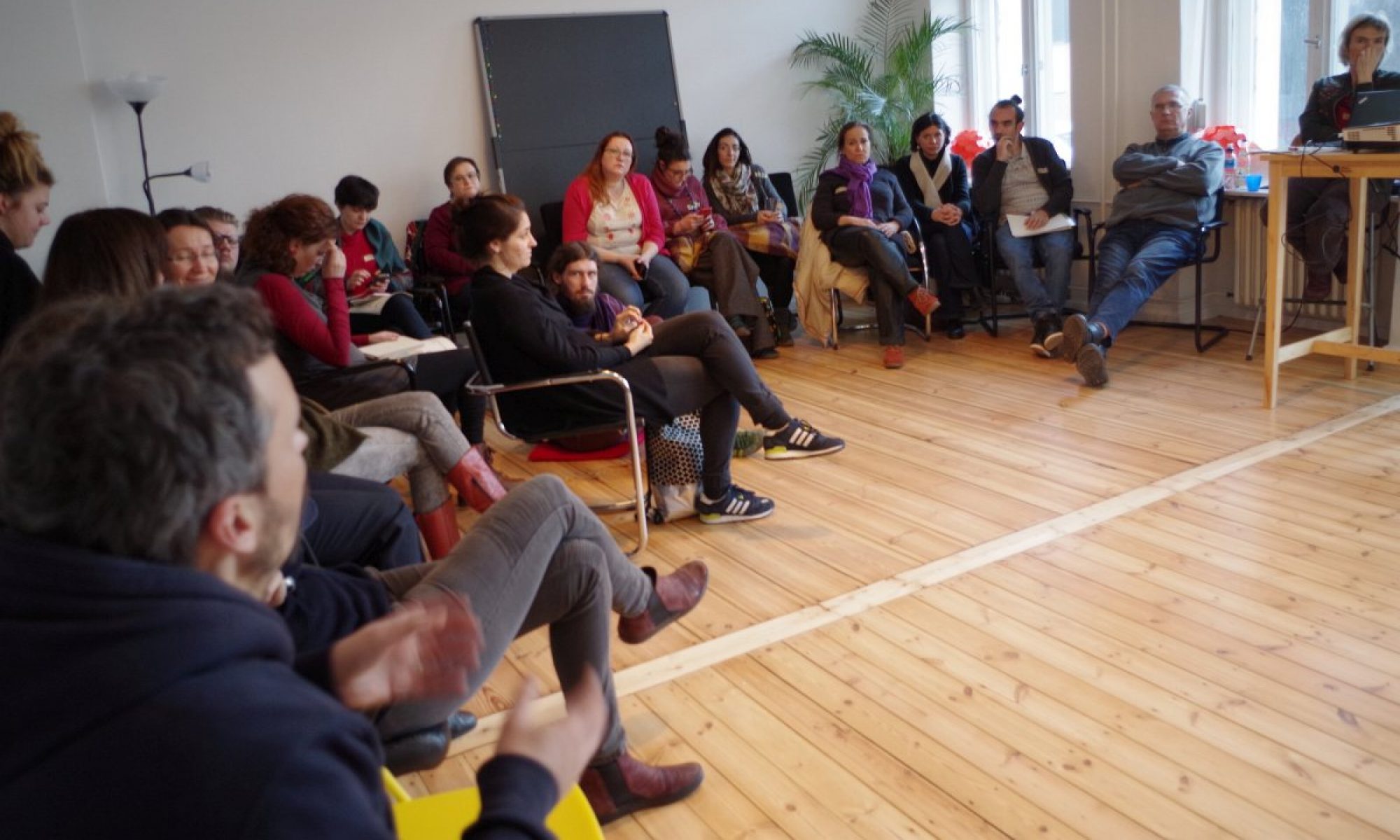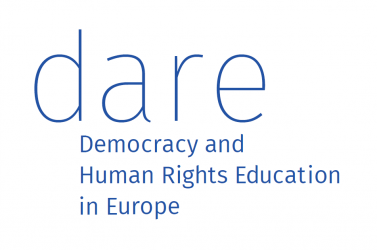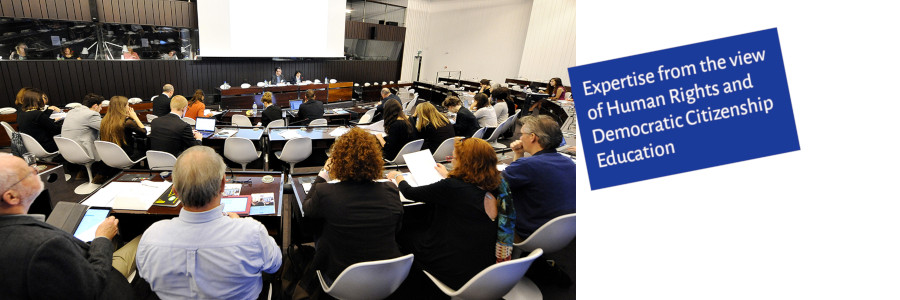- DARE points reflecting the state of citizenship education in Europe at the End of European Year of Citizenship 2013
We welcome the European Year of Citizenship as an opportunity to bring back the issue of Citizenship Education on the European Agenda – DARE has been founded from NGO´s to bring this issue on the Agenda 10 Years ago! Nevertheless at the end of the EYC we fear the year as a missed opportunity start to tackle the rising democratic and social challenges Europe and the European Union faces.
Background:
In light of the developments towards the European Elections 2014 the European Parliament Members as well as the European Commission fear the entry of large groups of right wing populists and euro-scepticists to the EP.
Romanian MEP Renate Weber (Chair of ALDE group) on the roundtable Making the Case for European Citizenship Education stated that “the social and democratic situation in EU members states has become unforeseeable dramatic” The increase of right wing and devaluating mindsets in the middle of societies and politics is a risk to the further existence of the European Union.
DG EAC representative Romano Girelli stated at the same roundtable, that key actors of the EC start to realize that a sole focus of the EU on economic policy making based on the assumption of economic competition between worlds´ leading markets seems to be contra-productive to the democratic and social climate in Europe, also a focus which was presumably too much on the legal aspects of European Citizenship did not soundly take into account democratic and social development Europe faces currently.
EUCIS-LLL President Joke van der Leuwe-Roord stated that the EC and the parliament finally should start to see civil society organizations as their natural ally when it comes to democratic agenda setting o the European level, as those organizations are probably the only capable to positively contribute to the democratic development of the European Union.
The European Youth forum has issued a statement on Citizenship Education in November 2013, as well as EUCIS-LLL organized the European Lifelong learning week 2013 under the focus of “Making the case of citizenship Education” contributing with various events of the member organizations in the EP Brussels.
The removal of core elements of citizenship education from the national curricula in Portugal (2011), Spain (2013) and Ireland (see HRE-list) are case that despite the adoption of the COE Charter on EDC/HRE, member states – arguing with the pressure of financial crisis – are not willing to support Education for Democratic Citizenship and Human Rights in their countries thus questioning the democratic development of their societies as a whole.
The 2012 EC´s communication on “re-thinking education” is challenging the whole field of European Citizenship Education reducing it to be almost irrelevant for the political process of the EU. This should be urgently re-considered and discussed widely also in terms of drawing the right conclusions for encountering the current crisis.
European Citizenship: just a legal concept?
Citizenship and especially the implementation of European citizenship should not be reduced to the legal perspectives as set out in the EU charter on fundamental rights. The concept of democratic citizenship education aims for responsible and democratic societies as a whole and asks for democracy and the rule of law as a lifelong and lifewide concept.
Thus EU Citizenship approach should develop a multiperspective understanding to apply the Rights of Citizens as set out in the EUFRC, the UDHR, the EUCHR. Especially in the situation of a democratic crisis in Europe educational concepts for European Citizenship should look for a holistic approaches taking into regard the multi-facetted mechanisms of groups focused enmity and devaluation of vulnerable groups in societies instead of separately investigating single forms of discrimination.
European Citizenship education should not be treated as a separate discipline: Based on the COE definitions it covers Human Rights Education and Education for Democratic Citizenship as well as is closely interrelated with other educational fields such as Global Education, history education education for sustainable development, intercultural learning, any form of anti-discriminatory education, anti-racism, gender equality and international youth and adult encounters.
These fields often share the same methodologies and aims but the split in different subjects on the political as well as on the educational level causes a risk for a holistic understanding of European Citizenship Education, as developments are treated separately and do not take into account the wide societal cause and effect relations.
The 2012 EC´s communication on “re-thinking education” is challenging the whole field of European Citizenship Education reducing it to be almost irrelevant for the political process of the EU. This should be urgently re-considered and discussed widely also in terms of drawing the right conclusions for encountering the current crisis.
Citizenship Education and the upcoming European parliamentary elections
It appears rather short sighted to reduce the aim of measures of learning about European Citizenship to increase the voting turnout of the upcoming EP elections: Although the ongoing evaluations of the European Youth in Action program have shown a significant connection between participation in the program and the motivation of young people to vote in the next European elections. Recent research such as the Sinus and Shell youth surveys indicate that there might be a difference between what young people define as their engagement on citizenship issues and political participation. Clearly participation in elections is one important aspect of democracy but the understanding of EDC/HRE is broader: Democracy and Human Rights Education – both formative for European Citizenship – ask for learning democracy through democracy.
Formal and non- formal Citizenship and Human Rights Education
A comparison of educational practice examples taken from various European educational fields indicates that the formal system in terms of teaching and developing the competences for European Citizenship Education is far beyond the standard of NFE providers. One aim would be whether member states and responsible authorities should enable sound cooperation of NFE and Formal Education on level of the member states, by reducing legal barriers (e.g. definitions of what is a formal educational setting and what is a non formal educational setting result in funding schemes excluding or hindering both systems on cooperation). A different perception of priorities tasks of formal education which is more targeting on knowledge transfer while the non-formal education focuses training on skills, attitudes and values, still results in different understandings of what European Citizenship Education is: The knowledge about the functioning of the EU and about the legal aspects of European citizenship, or a concept to train and enable and motivate people to claim their rights and apply them in everyday life acting as responsible citizens.
From the perspective of non-formal EDC/HRE we ask for an enhanced understanding of the interrelation of both educational fields: Citizenship is formed by knowledge, values, attitudes and behavior. This results in a demand to support a cross-sectoral approach in citizenship education, especially in the youth field. Especially by cooperating with schools/formal education, NFE providers are enabled to reach all groups of students. As pointed out the removal of legal barriers on level of the national educational systems would be of a great benefit for European Citizenship education.
Do not preach for the converted. European policy instruments supporting citizenship education should not only support mobility schemes for the “3 Million” already converted with additional mobility schemes, but focus to reach out for the ones that literally “stay at home” and are not mobile.
Data gathering on validation and assessment in Education for Democratic Citizenship and Human Rights
Euridyce 2011 and the ICCS studies as well as comparable date from the FRA in neighbouring policy fields (report on Holocaust Education in schools) once again show that teachers Europe-wide feel not confident to teach issues of European Citizenship and claim for better materials, training and support in regard to Citizenship education. A survey conducted among the DARE network in 2013 also pointed out that the formal learning systems still lack capacity and expertise to soundly teach EDC/HRE issues in their schools thus contributing to democratic school development as a whole.
Euridyce 2011 states that Citizenship Education is in all European Countries implemented in curricula or as a cross curricular subject. The understanding and concepts of citizenship education in the European member states widely differ, so that the findings of Euridyce allow no conclusion about the quality of the content. Key findings from the Worlds values survey on the contrary point out, that value education in schools just has marginal influence on the political dispositions of young people.
Europewide there has been produced on all levels an uncountable amount of EDC/HRE training materials for teachers and for democratic school development. There is programs such as the Pestalozzi program of the COE, the support instruments of the European Wergeland Centre, the instruments offered by the ODIHR, the analyses undertaken by the FRA and the vast field of national concepts, instruments and hundreds of ongoing projects of NGO´s producing good and well elaborated teaching materials, handbooks etc. Somehow they obviously seem not to reach the level of school development.
DARE generally shares these findings but critically remarks that the DATA available (and this counts for all European Citizenship studies) is data provided from the formal educational systems namely targeting on students, thus reproducing again and again the need for better teacher training. The conclusion of the DG EAC to again foster on a program for training teachers European Citizenship in this regard should be critically investigated.
A statistical data gathering on Education for Human Rights and Citizenship in European in Adult Education, Vocational Education and Training, and the Youth field is missing and would be a desireable to cross-measure the findings resulting from data gathered from the formal educational system. Nevertheless due to the widely differing support and reporting schemes in non-formal EDC/HRE this data gathering remains more than complicated.
Providers of non-formal education in the field of EDC/HRE largely cooperate with the formal system, most of them are based on project support scheme. There should be enhanced support for programs that enable NGO´s for long term guidance and trainings to continue these programs.
Measuring and assessing citizenship competences, validation of European citizenship learning
Valid data is crucial for political evidence based policy making!
As we indicated above: data gathering in the non-formal field of citizenship education remains difficult. The studies from CRELL allow for conclusions on the situation of Active Citizenship in the European Union and emphasize the role of learning in Active Citizenship.
Nevertheless measuring and assessing educational outcomes of learning processes in non formal EDC/HRE remains difficult and sensitive.
Due to the logic of non formal Citizenship and Human Rights education and especially due to national widely differing legal and financial support mechanisms for NFE, the focus of measuring should be a descriptive one. NFE has developed certain quality standards that apply for the side of the input: Europe wide there is common use of educational methods, reference instruments and similar reporting schemes of NFE providers. The methods and places of NFE as well as the special settings of citizenship education guarantee a safe space to develop democratic competences of learners. The low threshold enables broad involvement of marginalized and vulnerable groups, whose participation is an effort in itself and should not be threatened through wide assessment. In the youth field some of the existing assessment instruments such as the YOUTHPASS and other validation instruments show promising results, while it has to be mentioned that they largely influence the pedagogical setting of HRE/EDC. Nevertheless they seem to be better fitting than a NQF/EQF orientation of Citizenship learning which forces to formalized standardization (although several fields of EDC/HRE such as cooperation with University/ VET would offer settings for such assessment) .
Conclusions
The long term impact of a sound citizenship Education in Europe is lasting stable democratic societies – thus the results of EDC/HRE both in formal and non-formal education are hard to measure.
The DARE network aims for an integrated and connected understanding of the various educational fields as formative for European Citizenship. We asks for a European Program to support education in this field thus reaching out for interconnected and cascading effects on our democratic societies in Europe.
The European Year of Citizens in this regard is a missed opportunity for the EU. The EU has missed to find an answer on these urgent needs by formulating an adequate future funding program. Even worse the reduction of the future EU for citizens program on 6% in the future MFF goes in the opposite direction. Also an interconnected approach of Citizenship policies and European Educational program such as ERASMUS+ which could better respond to the challenging situation of HR and Democracy in Europe is missing.


